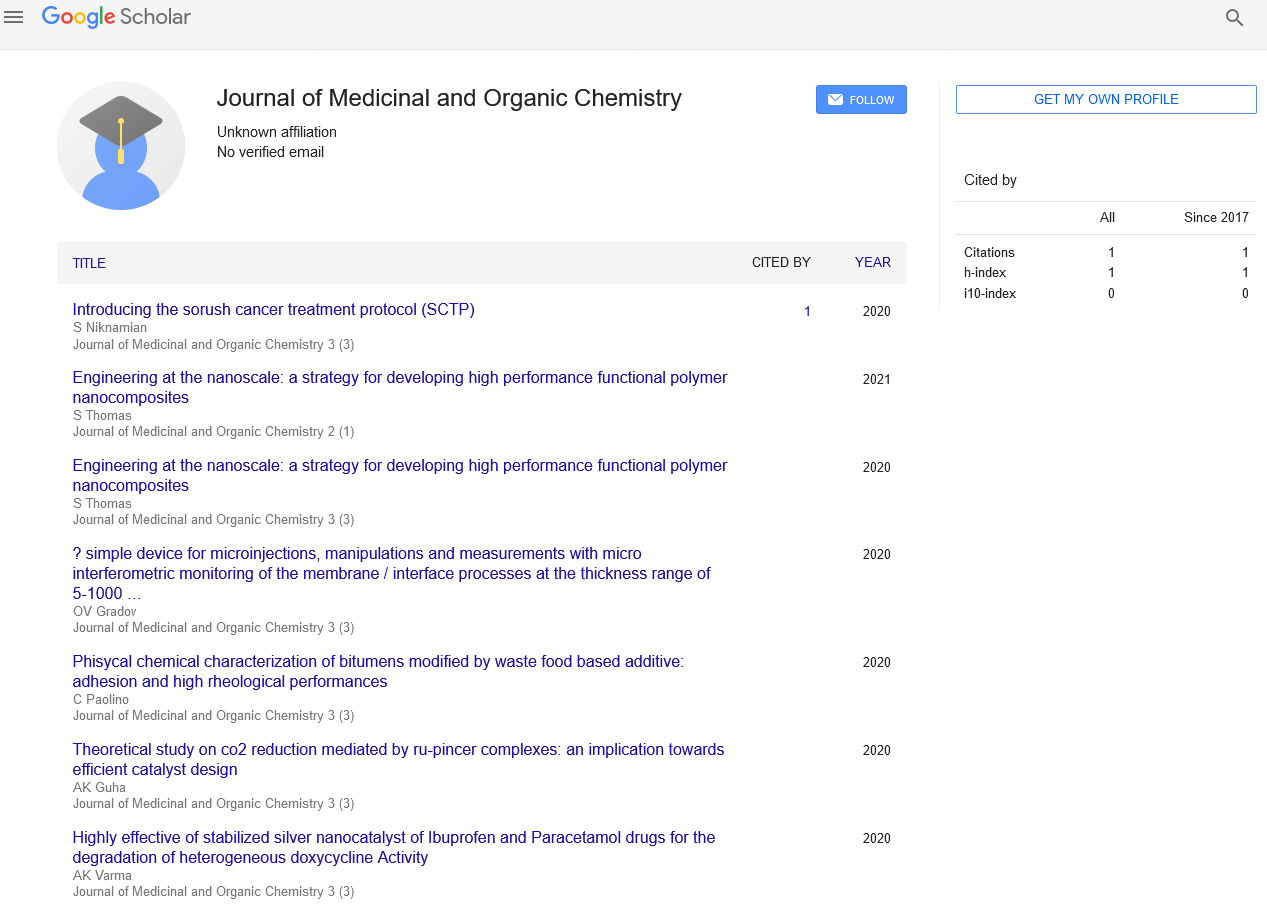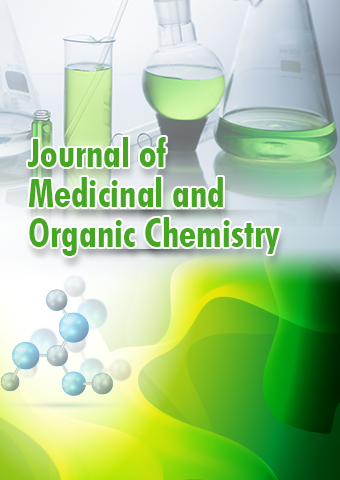Commentary - Journal of Medicinal and Organic Chemistry (2021) Volume 1, Issue 1
Role of Natural Medicine in Drug Discovery
- Corresponding Author:
- Keith Kein Department of Pharmaceutical Sciences, University of New South Wales, Sydney, Australia E-mail: keith_kein@sw.au
Abstract
Introduction
The pharmaceutical industry’s drug discovery and development process is one of the most complex and costly processes. It covers a wide range of end-to-end activities and includes a variety of supply chain and support services. Each effective medicine is projected to cost between $800 million and $1 billion to research and develop. The discovery phase, preclinical phase, early-stage development, mid-stage development, and late-stage development are all stages of drug development. Drug development has changed a lot over the years, but the goal has remained the same: to find better medications for all ailments. Drug discovery and development is driven by the knowledge of the chemistry of the molecules and their association with the life process. Medicinal chemists use the classical or traditional method to change bio-active compounds found in natural sources. The active components in most existing medications come from these natural compounds. The current era has seen a constant shift in the function of modern drug discovery. Chemical approaches for discovering compounds have also evolved, leading to the development of technologies like combinatorial chemistry (combichem), microwave assisted organic synthesis (MAOS), and high-throughput biological screening (HTS). Medicinal experts have been able to speed up the discovery process which is a trending as well as new technology. The first stage of the drug development process is to design, synthesise, and purify the drug. To create the lead molecule, the medicinal chemist uses his or her expertise of synthetic chemistry, medicinal chemistry, and biology.
To satisfy regulatory compliances, drug developers rely on analytical chemical testing and process development. About half of analytical chemistry services are outsourced, according to estimates. Contract research organisations such as Charles River Laboratory, Covance Quintiles, PPD, Eurofins, SGS Life Sciences, Wuxi AppTech, and others currently provide the majority of these support services. Preclinical testing, toxicity testing, ADME analysis, product release testing, formulation, and quality control all employ analytical methodologies and technology. The pharmaceutical industry uses a variety of processes known as purification chemistry to separate big molecules such as monoclonal antibodies and vaccines in order to meet regulatory criteria. For the treatment of cancer, diabetes, asthma, rheumatoid arthritis, and other diseases, biologics such as vaccines, growth factors, monoclonal antibodies, and biosimilars are becoming increasingly popular. The high degree of purification criteria that are necessary to develop these biologics adds to the complexity.
In short, chemistry is still the most valuable science and performs the most important role in drug development. It acts as a backbone for medication discovery and expansion in the pharmaceutical sector. Organic chemistry is extremely crucial in the development of new medicines. Many medicines are derived from natural sources, and the correct extraction can improve human health. Furthermore, as compared to medicine derived from laboratory experiments, medicine derived from organic chemicals is generally considered to be safer. Furthermore, the effect is more long-lasting and comprehensive. Garcinia cambogia from mangosteen is an example of a brilliant organic chemistry discovery that helps to treat cancer and prevent cell damage. As a result, organic chemistry is critical for the pharmaceutical sector to create more useful and safer medicines.
Acknowledgement
None
Conflict of Interest
The author declares there is no conflict of interest.

